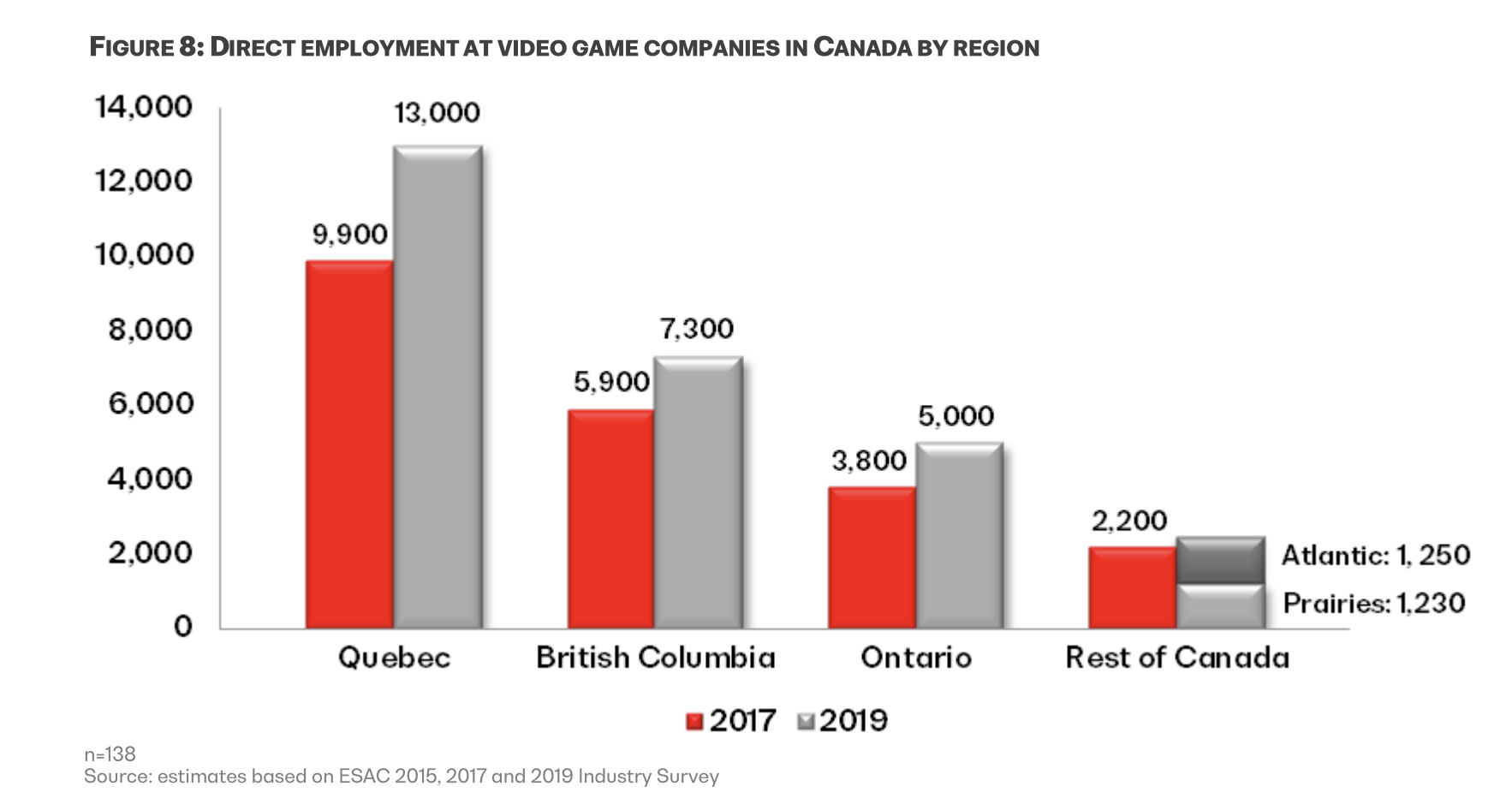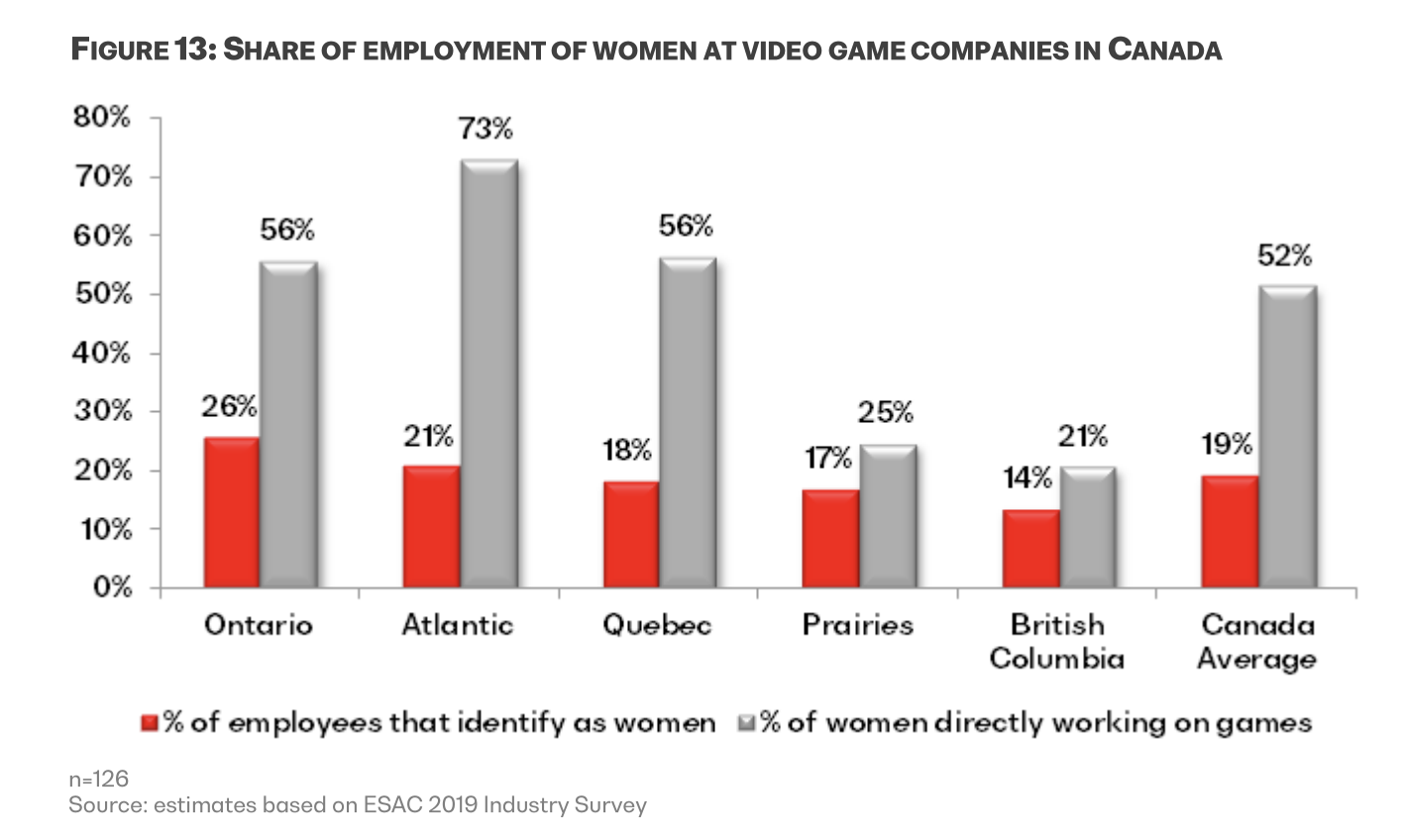
The Canadian video game industry contributes $4.5 billion CAD to Canada’s GDP annually, according to a new study from the Entertainment Software Association of Canada (ESAC).
The ESAC, which represents game makers across Canada, commissioned the Canadian Video Game Industry 2019 report from research firm Nordicity.
Altogether, the study looks at the Canadian video game industry through five lenses: economic impact, size and structure, geography, employment impact, and workforce.

To start, the report found that the $4.5 billion sum marks a 20 percent increase in GDP contribution over 2017. Of this total, an estimated $2.6 billion comes directly from the game industry, with the remaining $1.9 billion accounted for through indirect and induced impacts.
Overall, there are 692 active game development studios in Canada — up 16 percent from 2017. Notably, much of this growth occurred in Ontario and regions like Atlantic Canada and the Prairies. All in all, 82 percent of Canadian game studios are based in Quebec, Ontario or British Columbia.
In general, though, Canada is the third-largest source of game development in the world, following the U.S. and Japan. That’s because there’s a large talent pool here, in part drawn to the country due to lucrative provincial tax incentives. Some of the most prominent Canadian game developers include:
- Alberta’s BioWare Edmonton (Mass Effect trilogy)
- Ontario’s Ubisoft Toronto (Splinter Cell: Blacklist) and Studio MDHR (Cuphead)
- Quebec’s Ubisoft Montreal (Rainbow Six: Siege), Ubisoft Quebec (Assassin’s Creed Odyssey) and Eidos Montreal (Shadow of the Tomb Raider)
- Vancouver’s Next Level Games (Luigi’s Mansion 3) and The Coalition (Gears 5)
The increase in overall number of development studios also helped push Canada’s total number of Full-Time Equivalents (FTEs) of employment to 48,000. Specifically, 27,700 FTEs were employed directly by gaming companies, which is 28 percent more than the number of employed FTEs in 2017. FTE growth was seen across all Canadian regions, although it was the strongest in Ontario and Quebec.

In terms of the actual work force, the average video game worker in Canada is 31-years-old. Further, 19 percent of Canadian video game employees are women, up from 16 percent in 2016. However, average annual FTE salary dropped to $75,900, compared to $77,300 in 2017.
Nordicity collected the findings from 182 Canadian video game companies as part of online survey that ran between March and June 2019. The full Canadian Video Game Industry 2019 report can be viewed here.
Source: ESAC
MobileSyrup may earn a commission from purchases made via our links, which helps fund the journalism we provide free on our website. These links do not influence our editorial content. Support us here.


